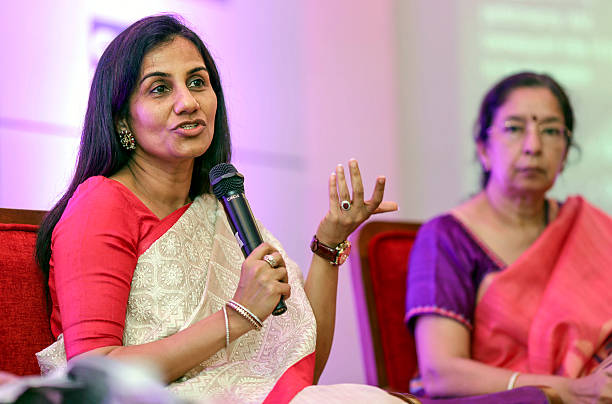Published on: July 26, 2025 at 12:38
Chanda Kochhar Case: A landmark appellate tribunal verdict finds former ICICI Bank CEO Chanda Kochhar guilty of accepting a ₹64 crore bribe linked to a ₹300 crore loan for the Videocon Group—raising major red flags on corporate integrity in India’s banking sector.
Chanda Kochhar Case| What’s Been Claimed?
-
An appellate tribunal ruled that Chanda Kochhar accepted ₹64 crore in kickbacks through her husband, Deepak Kochhar, in exchange for approving a ₹300 crore loan to the Videocon Group
-
The bribery was part of a broader scam involving loans totalling ₹3,250 crore, triggering probes by the CBI and ED
Background: From Banking Star to Accused
-
Kochhar rose from a management trainee to CEO/MD of ICICI (2009–2018), earning recognition as one of India’s most powerful bankers
-
Red flags emerged when the Srikrishna committee and ICICI’s board flagged conflict-of-interest concerns—leading to her resignation and clawbacks of bonuses from 2009 to 2018
The Money Trail: How the Bribe Was Routed
-
The ₹64 crore was allegedly channeled via Videocon entities to NuPower Renewables Pvt Ltd (NRPL)—a company linked to her husband
-
Additionally, the couple acquired a ₹5.3 crore Churchgate flat for just ₹11 lakh, a property transfer the CBI deems part of the quid-pro-quo .
Also read: Chanda Kochhar found guilty of accepting a Rs 64 crore bribe in ICICI-Videocon loan case
Chanda Kochhar Case| The Fallout: Legal and Corporate Consequences
-
The tribunal’s verdict discredits previous rulings that mitigated charges against her, signaling a stringent stance on banking malfeasance
-
ICICI Bank secured approval to claw back her bonuses, reinforcing internal governance tactics
-
Ongoing probes by the ED and CBI may result in more severe legal repercussions for her and her husband.
Impact: Why This Is a Landmark Case
-
Banking Ethics Revisited: This high-profile conviction underscores accountability lapses at India’s top banks.
-
Investor Confidence: Raises questions about the robustness of internal controls and the role of independent oversight in financial institutions.
-
Legal Precedent: Sets the stage for tougher scrutiny of conflict-of-interest cases in banking.
Chanda Kochhar Case| What to Expect Next?
-
The Supreme Court is likely to encounter appeals from Chanda and her husband, Deepak, as they challenge the tribunal’s ruling.
-
The ED’s asset attachment process may escalate, affecting their properties and financial holdings.
-
ICICI and regulators may strengthen compliance frameworks to restore trust in corporate governance standards.
✅ Frequently Asked Questions (FAQs)
Q: What exactly did Kochhar do?
A: She sanctioned a ₹300 crore loan to Videocon in 2009 and allegedly received ₹64 crore in return—funneled to her husband’s company
Q: What are the legal consequences?
A: Aside from criminal proceedings, ICICI is clawing back her bonuses and stripped her of entitlements. They may also pursue asset attachment via ED orders.
Q: How will this affect ICICI Bank?
A: This verdict pushes ICICI to tighten its governance standards and enhance conflict-of-interest detection procedures
Also Read:
Jagdeep Dhankhar Resignation: The Shocking Exit of India’s Vice President Explained
Bryan Johnson May Shut Down Blueprint: Blueprint at Risk? Best Ultimate Guide 2025
AP EAMCET Seat Allotment 2025 Live Now: Download Your Allotment & Next Steps

